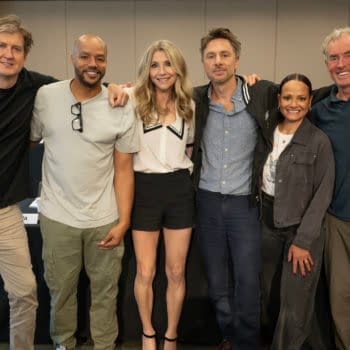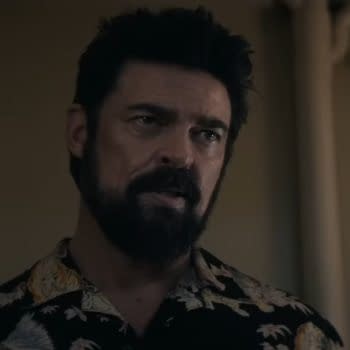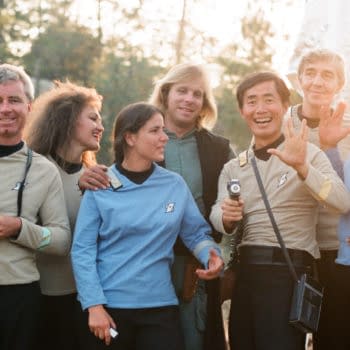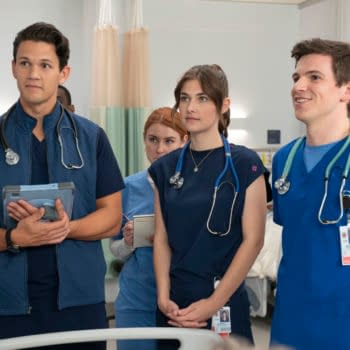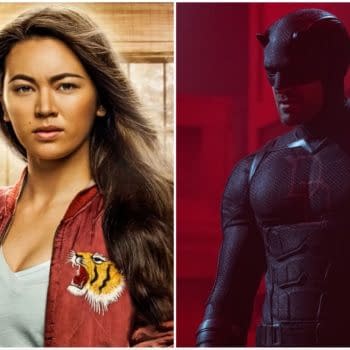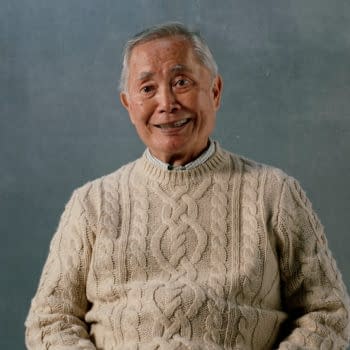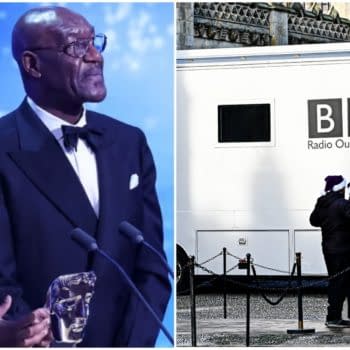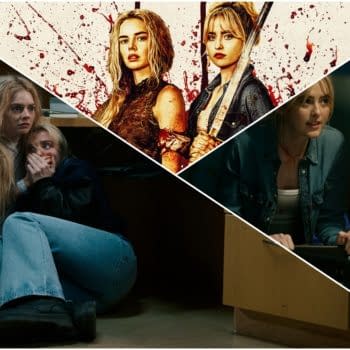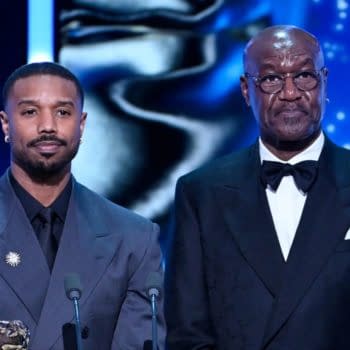Posted in: Interview, Lionsgate, Movies, NBC | Tagged: Chicago Justice, Chicago Med, dick wolf, Endangered Species, law & order: special victims unit, m.j. bassett, Peter Stone, Philip Winchester
Endangered Species Star Philip Winchester Talks Filming Opportunities
Some may say the best jobs are the ones that don't feel like work, and that's the perk of being an actor like Philip Winchester, who shot on location in Africa for his latest film Endangered Species. Winchester plays Jack Halsey, the family patriarch of a safari-gone-wrong with his vacationing family. I spoke to the star about having the coincidence of shooting back-to-back films, adjusting to early pandemic protocols, chemistry on set, and his Dick Wolf-TV future. "I was working with [director] M.J. Bassett on a film called Rogue, and we were shooting in Johannesburg, South Africa," Winchester said. "The second film came up and the idea of shooting a film right on the heels of Rogue in Johannesburg. We said, 'Yeah, let's do that. Let's get together with the cast together. Let's shoot right after we're done and roll into this one and then maybe roll into a third one.' Then a few things happened, and it got waylaid. Then 2020 rolled around, and the world kind of fell off its axis for a little bit."
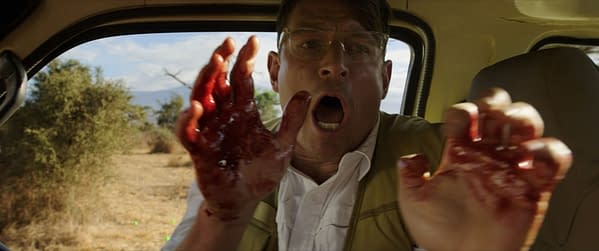
The Easy Pitch of Endangered Species
The split-second decision to join Endangered Species was a no-brainer for Winchester. "I received a phone call from M.J. saying, 'Hey, Molly Hassell, who's the producer on this movie, had an idea that we're going to Kenya. We can put a crew together really quickly. Do you still want to be involved?' I said I did," he recalled. "It happened really quickly, probably at the beginning of September sometime. By October, we were making the movie. They managed to pull a lot of strings together in a short amount of time." As the COVID pandemic initially shut down filming globally, Winchester recalled what was set up on the set. "I'm impressed with Kenya when we wrapped up," he said. "They had set protocols in place. I remember really kind of simple things that made the difference is where they had hand washing stations outside of buildings, outside at restaurants, and things like that. We didn't get to go out in Nairobi because of locked down. The place we stayed had these practical applications of handwashing stations, and you had to wear a mask. Then we were tested, I think twice a week. You just got used to it. We were in Amboseli National Park, which is, I think, the southeast side of the country with Mount Kilimanjaro looming in the background. We flew up north to a place called Shaba [National Reserve], which was another national park. All of this stuff was taking place outside. We were fortunate that we didn't have to mask up, run around inside buildings, and things like that. We could be normal people if you want to say that."
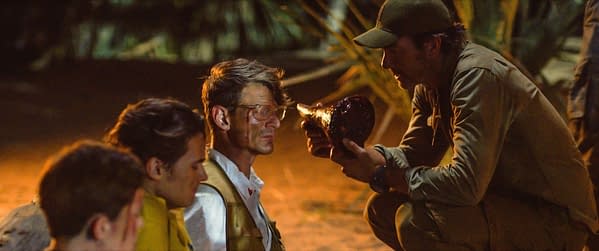
On top of the extensive hours Winchester had bonding with his cast and crew, a good chunk of their time on set was spent in a van, which provided its own chance of opportunities to commune with nature. "The amazing thing about where we were was it was real life," he said. "Everything was in camera. When we were in Amboseli National Park with Rebecca [Romijn], Chris Fisher, Michael Johnston, Isabel Bassett, we would all be in the van and have a cameraman either strapped to the front, looking back into the van or behind us shooting over the tops of our heads. When MJ would see something that worked really well, we would drive the car into that part of the park and film it. It would be a scene may be that we weren't going to shoot that day. It just came up because there was a whole crew. There was a whole group of wildebeest, a whole herd of elephants, a zebra, or a giraffe that just happened to be walking by. There were all these incredibly once-in-a-lifetime experiences that happened right in front of us. A lot of the time, the difficult thing was to sort of containing that excitement, because you before filming a certain scene and then behind the camera, a lion chasing a zebra off for a kill. It was truly extraordinary. It's just a real reminder that we're a pretty small part of this circle of life, do you know what I mean?"
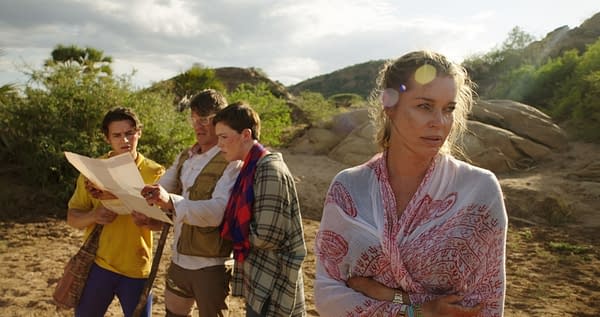
Winchester recalled even the smallest of things between shots was an experience in and of itself. "We stayed in a place called Tawi Lodge when we were in near Amboseli National Park," he said. "It has a watering hole for all the wildlife that's out there. Every morning the elephants would come in and bathe, drink, and you could have your coffee and your breakfast before work. They'd get up and leave. You'd go get in the van and head off to work in the morning. It was just a truly incredible experience."
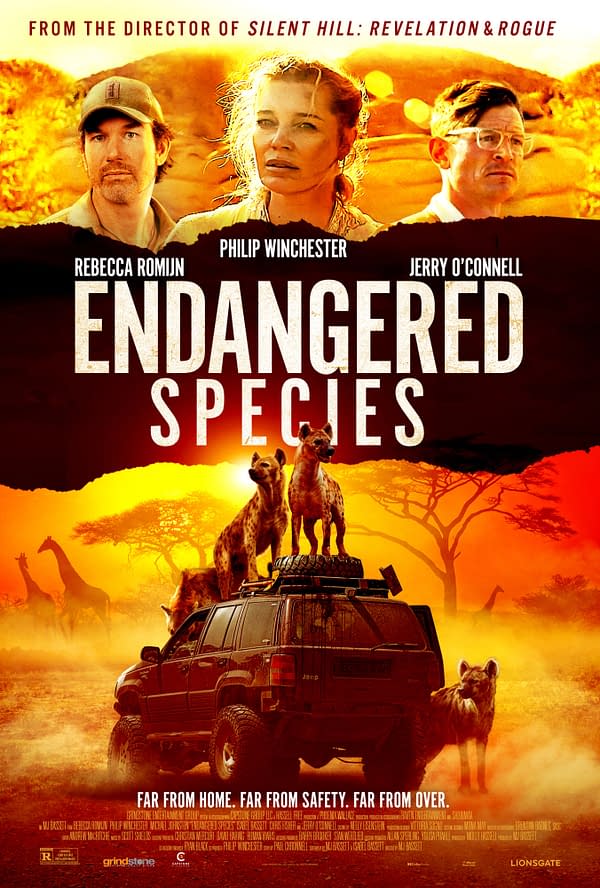
The actor said a film like Endangered Species provides a break from, at times grueling schedule of TV work. "When you go into an independent film that's on a really tight schedule, there is no difference in sort of how you're cranking through the material," Winchester said. "Television's incredibly fast, and I think that's one of the reasons I enjoy it so much, is you do a lot of material. You're making decisions at the moment. There's a big scene element because there's a lot of problem-solving happening. I really like the energy of a lot of creative people getting together to solve stuff 100 hundred times a day. I love that element. That happens in independent films as well. I would say the biggest difference is maybe prep time. In television, when you're shooting 22, 23 episodes a year and doing episodic TV for network television, you get a script sometimes the week before, sometimes a few days before. Sometimes they don't like it, so they change it on the spot. You're constantly learning new material and then putting it out before you've had time to really sit in it and digest it. The biggest difference and one of the most enjoyable things about it and the film is you usually have a bit more time to sit with the material, even though you don't have a lot of time to shoot it. You still have a lot of time to make decisions about what you want to shoot. As an actor coming into it, you've made some choices, whereas in television, sometimes you're just holding on by the skin of your teeth and learning lines and hoping to get them. With film, you can have a little more ownership over the choices. I think that's a real plus if I was to compare."
Winchester's Philip Stone made recurring appearances across numerous Wolf series Chicago Justice, Chicago Med, and Law & Order: Special Victims Unit. With his final appearance more than two years ago in the SVU episode "End Game," the actor's leaving the door open for a possible return. "We saw Stone make a decision there at the end of SVU," he said. "I've talked with some of the writers and had some discussions. I don't know if the chapter is completely closed yet. One of the amazing things about Dick Wolf is that he will bring these characters back and reuse them. My gut would say we haven't seen the last of Peter Stone in what capacity or where. That's entirely up to the gods. I don't think we've seen the last time."
Lionsgate's Endangered Species, which also stars Jerry O'Connell, comes to select theaters, Apple TV+, and everywhere you rent movies on May 28th and on Blu-ray and DVD on June 1st.






